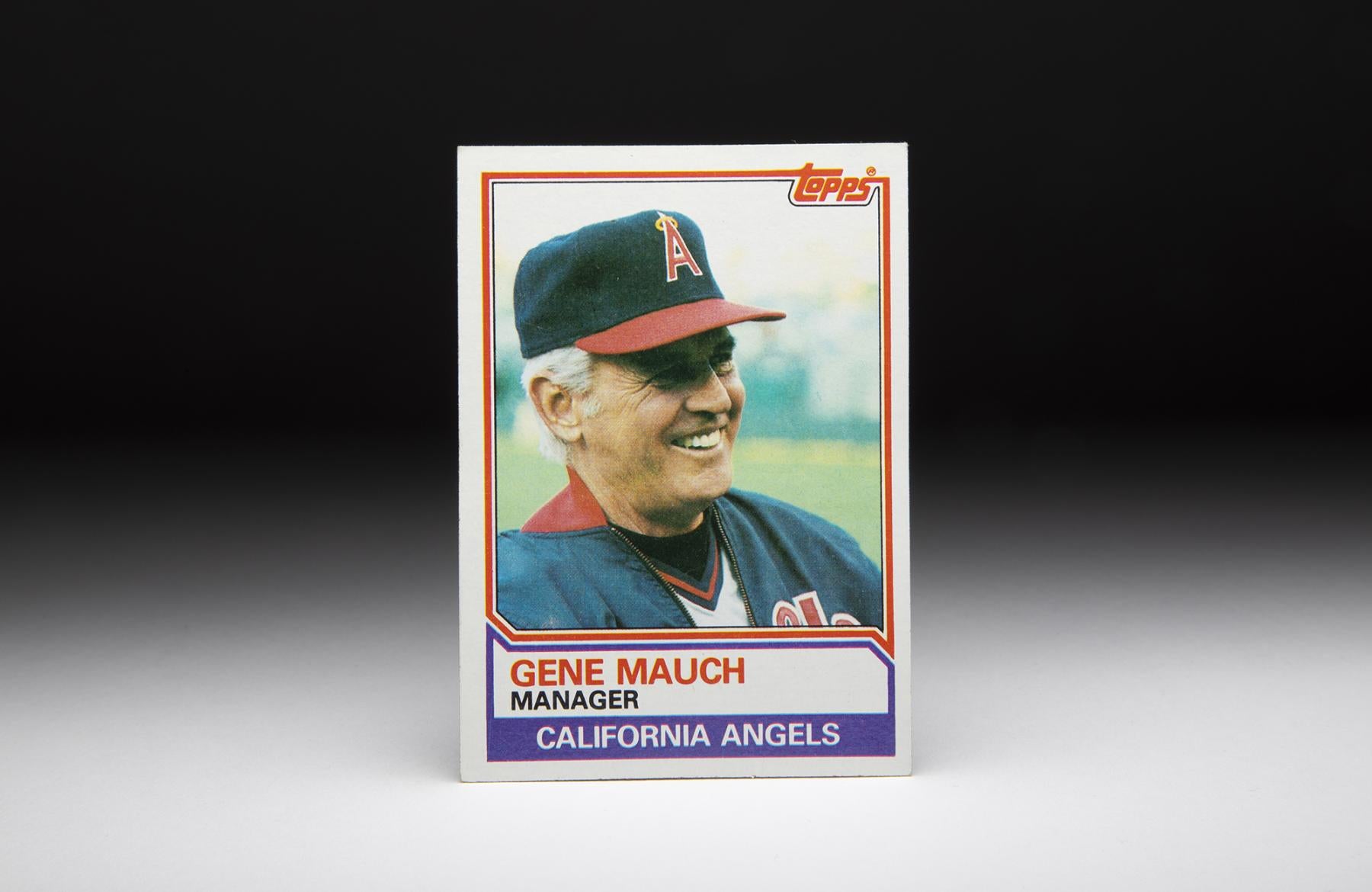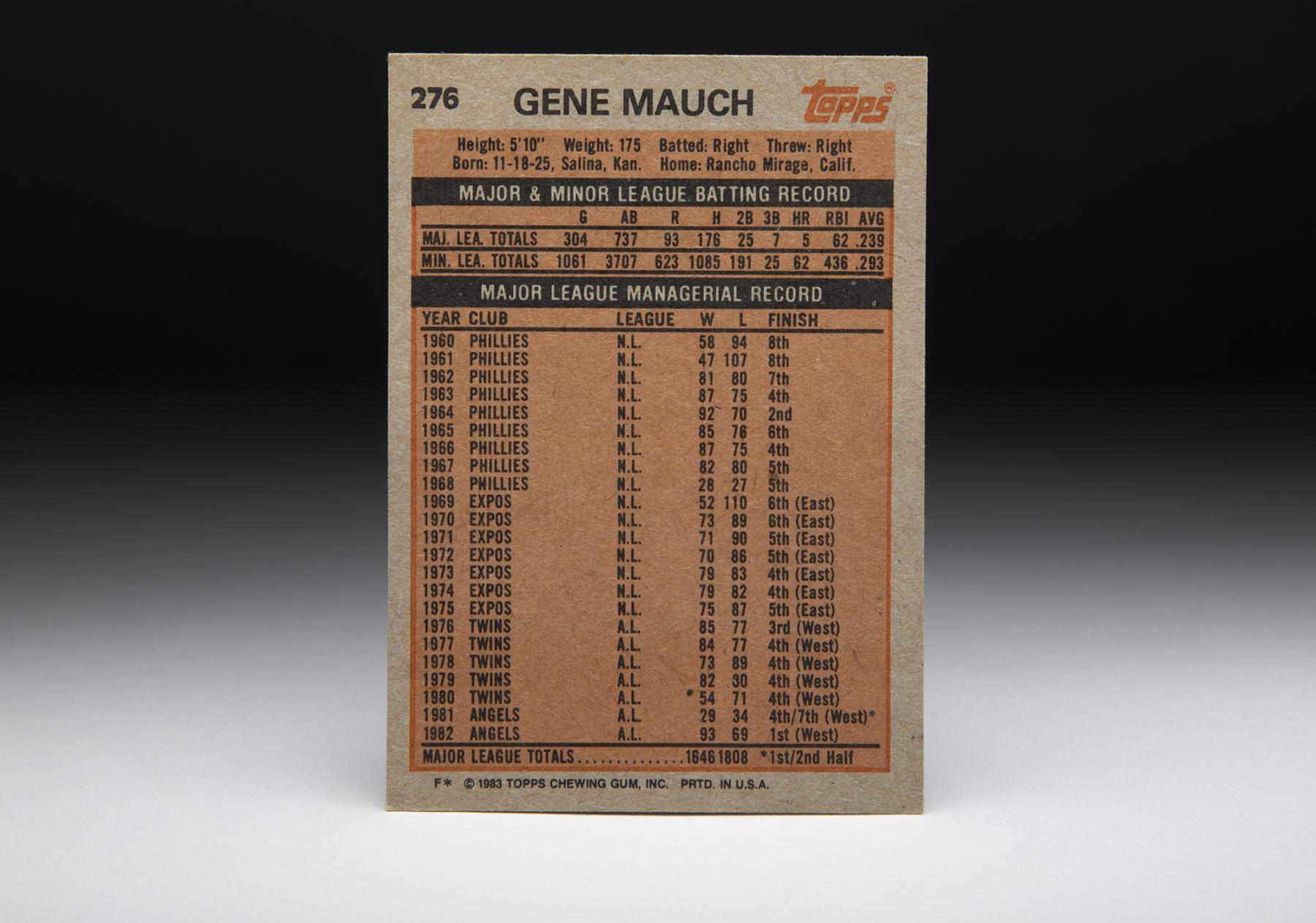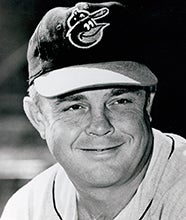- Home
- Our Stories
- #CardCorner: 1983 Topps Gene Mauch
#CardCorner: 1983 Topps Gene Mauch
He was a champion of bunting, defense and sound fundamentals. But his tagline remains: “The Best Manager Who Never Won a Pennant.”
Gene Mauch, however, was much more.
“Strictly speaking, Mauch may be the best manager in baseball because he takes the players he’s given and does the most that can possibly be done with them,” said Orioles shortstop Mark Belanger – who played for future Hall of Famer manager Earl Weaver – in 1979.
Official Hall of Fame Apparel
Proceeds from online store purchases help support our mission to preserve baseball history. Thank you!
Mauch was born Nov. 18, 1925, in Salina, Kan., and grew up in Southern California. In 1943, he signed with the Brooklyn Dodgers – and Mauch made his big league debut at 18 years old the next year. He played nine big league seasons – never more than 72 games in any one year – and retired in the winter of 1958.
From there, Mauch – who had been a player-manager with the Atlanta Crackers 1953 in the Southern Association – became the boss of the Red Sox’s Triple-A affiliate in Minneapolis in 1958 and 1959. When Philadelphia manager Eddie Sawyer resigned one game into the 1960 season, the Phillies summoned the 34-year-old Mauch to Philadelphia.
“The only kind of baseball I like is the winning kind,” Mauch told the Associated Press when he arrived in Philadelphia. “And that’s what I expect my team to do.”
The Phillies lost 107 games in 1961, but improved by 34 wins in 1962 to post an 81-80 record. Mauch pushed the Phillies to 87 wins in 1963, then appeared to be headed for the NL pennant the following year.
On the morning of Sept. 21, 1964, the Phillies held a six-and-a-half-game advantage over the rest of the NL with just 12 games remaining. Ten days later, the Phillies had lost 10 straight games and never recovered.
Nonetheless, Mauch was voted the National League Manager of the Year by the Associated Press.
“Lose the first three holes of a golf match, and they say you weren’t warmed up,” Mauch said. “Lose the last three, and they say you choked.”
Mauch’s teams quickly became known for their “small ball” style of play. Mauch would often play for one run, advancing runners with a bunt or playing the hit-and-run. He was also an early proponent of situational substitution, once sending up seven pinch-hitters in a row in an Aug. 6, 1979, game against Seattle.
In the era before massive home run totals dominated the game, this style often turned losing teams into contending ones. But in the end, Mauch was only interested in winning titles.
“Platooning isn’t worth a (darn) if you don’t win the game,” Mauch said.
Mauch’s Phillies finished above .500 from 1962-67, but he was fired from the job 54 games into the 1968 season. But Mauch was soon named the manager of the expansion Montreal Expos, and within five years he had the club contending for the NL East title.
Hall of Fame manager Dick Williams was a third base coach for Mauch with the Expos in 1970 between managerial jobs with the Red Sox and the A’s.
“If there was a clinic run by all the major league managers, Mauch would be the head instructor,” wrote Williams in his autobiography No More Mr. Nice Guy.
The Expos fired Mauch after the 1975 season, but he hooked on with Minnesota in 1976. He managed the Twins for four full seasons and part of a fifth, finishing above .500 three times. He was fired during the 1980 season, but right before the 1981 strike he was hired to manage the Angels.
In 1982, Mauch led California to the AL West title. The Angels took a 2-games-to-none lead in the best-of-5 ALCS, only to see Milwaukee become the first team in LCS history to rally from an 0-2 deficit.
“Unfortunately, even when you win championships, there are a certain number of games you’re going to lose, 60 or more,” said Mauch, who was well known for his intensity in the dugout. “As I’ve gotten a little older, I have developed an inability to cope with those losses. You’d think that when a guy’s been around as long as I have that a tolerance would develop. It hasn’t been that way at all.”
Mauch resigned after the 1982 season to take care of his ill wife, but returned to the club as manager in 1985 and led the Angels to a second-place finish. The next year, California again won the AL West – only to lose the ALCS to the Red Sox after leading 3-games-to-1 after four games and 5-2 in the top of the ninth inning of Game 5.
The next season, the Angels finished last in the AL West. Battling health issues, Mauch resigned as the Angels manager in Spring Training of 1988.
His final record: 1,902-2,037 (.483) in 26 seasons, including two first-place finishes and two second-place finishes. His victory total ranks 13th all-time. At the time of retirement, only Connie Mack, John McGraw and Bucky Harris had managed in more big league seasons than Mauch.
Mauch passed away Aug. 8, 2005, at the age of 79. But his legacy includes a generation of managers who found success by following the Gene Mauch blueprint.
Craig Muder is the director of communications for the National Baseball Hall of Fame and Museum
Related Stories
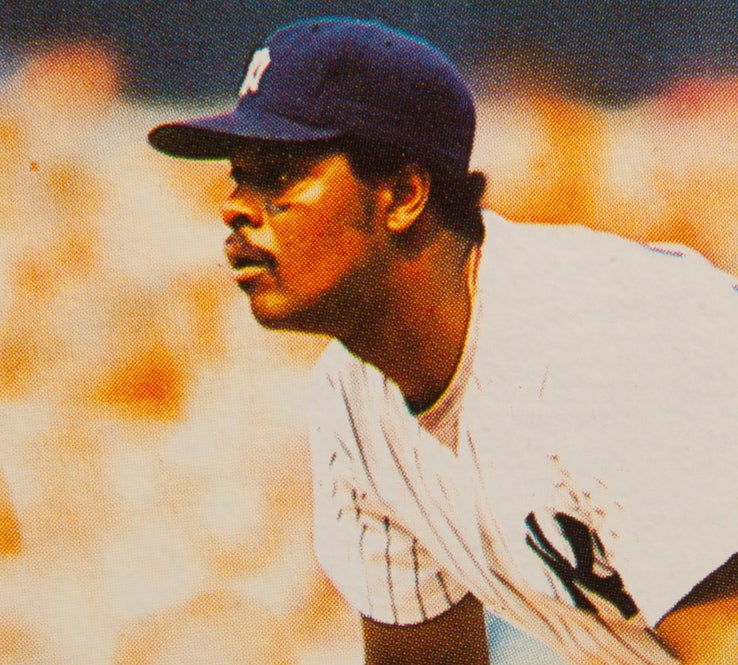
#CardCorner: 1983 Topps John Mayberry
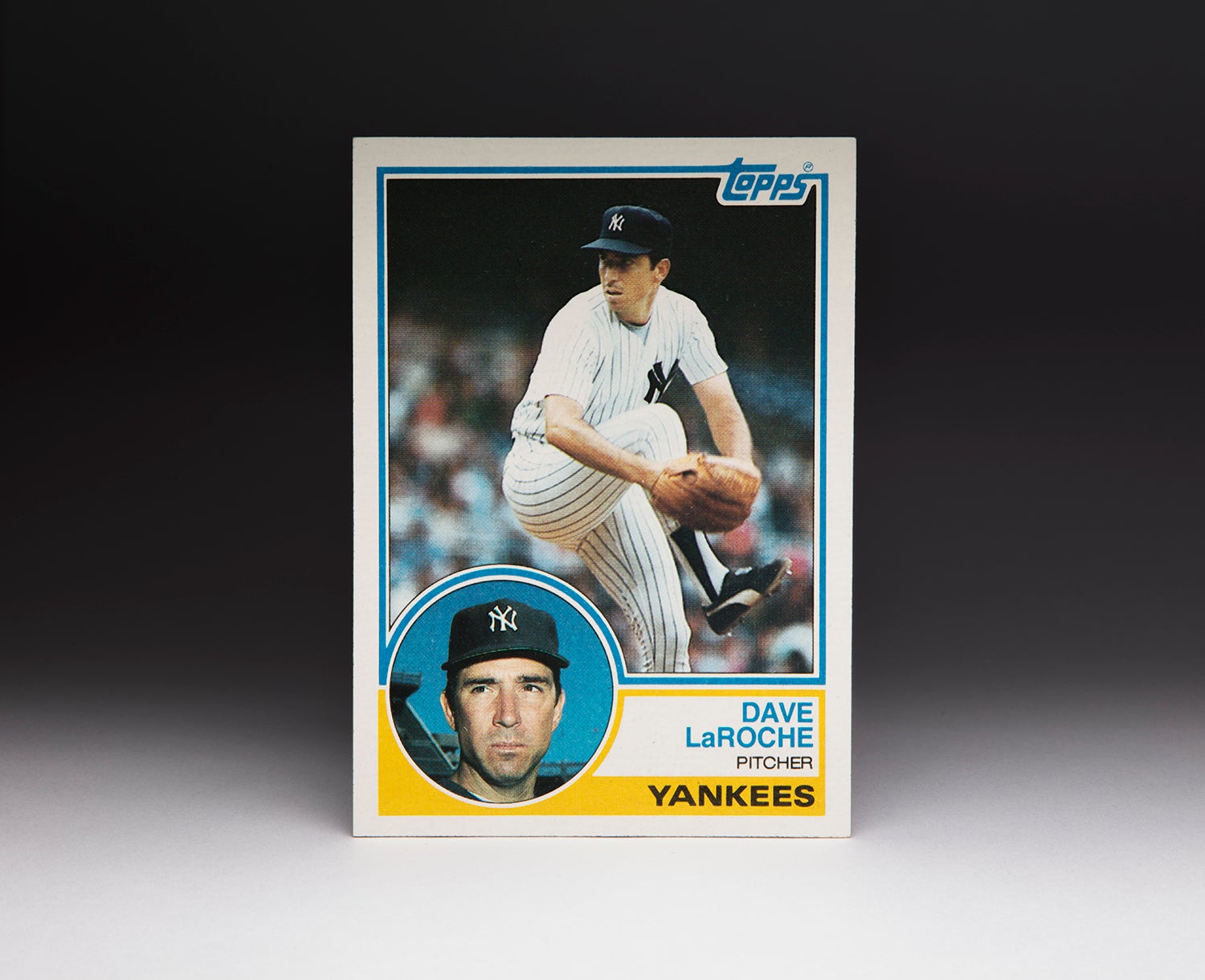
#CardCorner: 1983 Topps Dave LaRoche
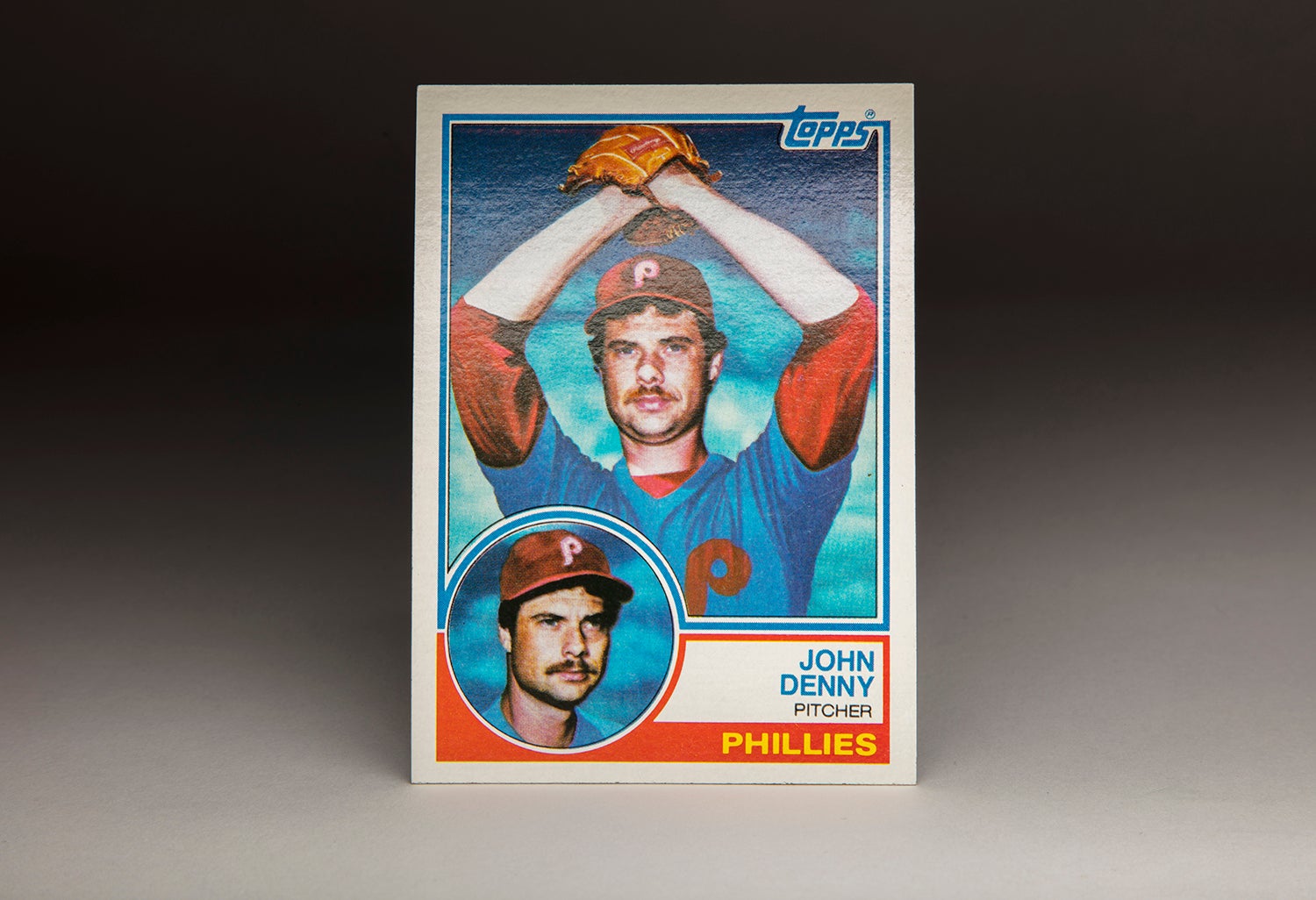
#CardCorner: 1983 Topps John Denny
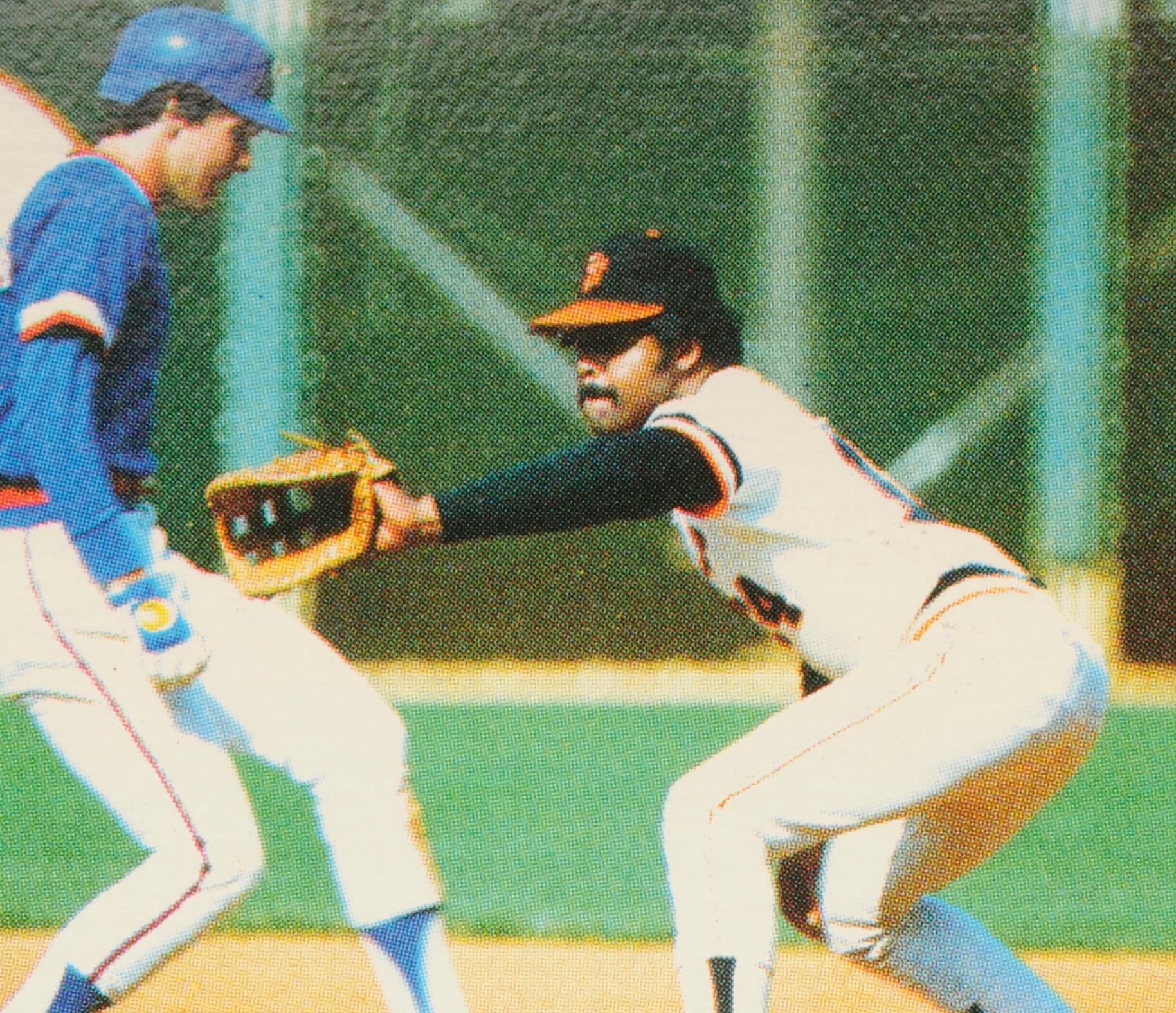
#CardCorner: 1983 Topps Reggie Smith

#CardCorner: 1983 Topps John Mayberry

#CardCorner: 1983 Topps Dave LaRoche

#CardCorner: 1983 Topps John Denny


